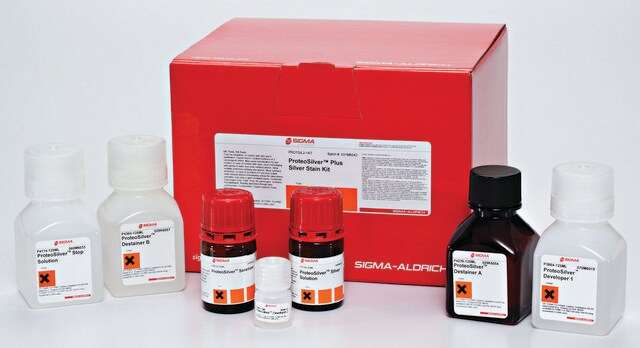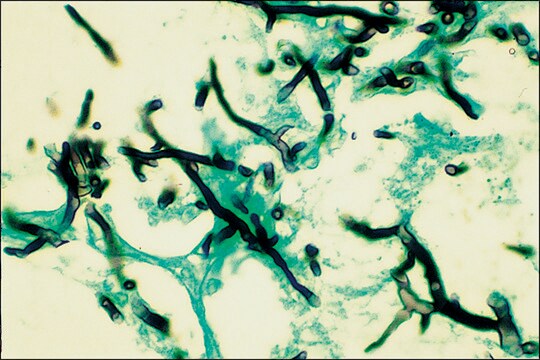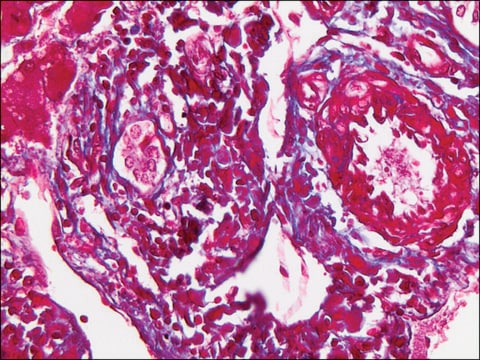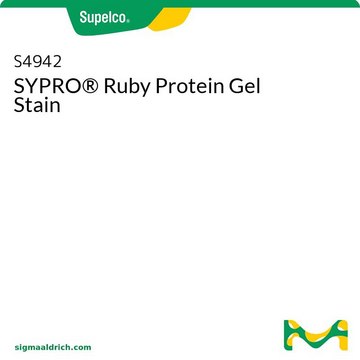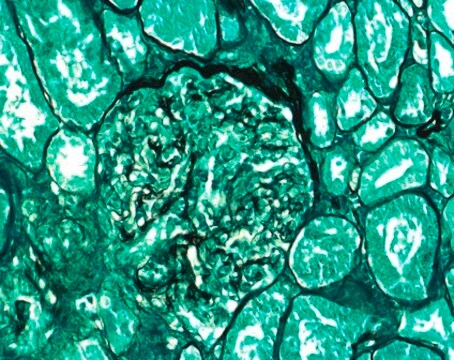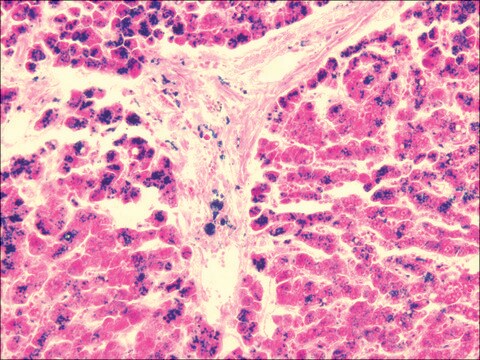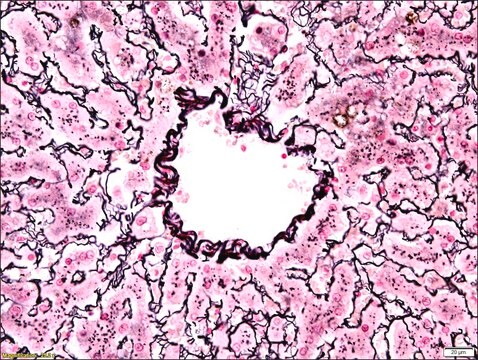PROTSIL1
ProteoSilver™ Silver Stain Kit
Synonym(s):
Silver Staining Kit
About This Item
Recommended Products
usage
kit sufficient for 25 mini-gels (10 × 10 cm)
Quality Level
technique(s)
protein staining: suitable
General description
Application
Features and Benefits
- Premixed and preweighed solutions reduce time and cost of purchasing and preparing individual components
- Optimized protocols help establish conditions for best results
- High sensitivity and low background ensure very low abundance proteins can be detected and resolved from other proteins
- MALDI Compatible - Protein spots of interest can be further characterized by mass spectrometry
- Room Temperature Stability allows easy and convenient storage
Legal Information
replaced by
Signal Word
Danger
Hazard Statements
Precautionary Statements
Hazard Classifications
Acute Tox. 2 Inhalation - Acute Tox. 3 Dermal - Acute Tox. 3 Oral - Aquatic Acute 1 - Aquatic Chronic 1 - Carc. 1B - Eye Dam. 1 - Flam. Liq. 3 - Met. Corr. 1 - Muta. 2 - Repr. 1B - Skin Corr. 1A - Skin Sens. 1 - STOT SE 2 - STOT SE 3
Target Organs
Eyes,Central nervous system, Respiratory system
Storage Class Code
3 - Flammable liquids
Flash Point(F)
132.8 °F - closed cup
Flash Point(C)
56 °C - closed cup
Choose from one of the most recent versions:
Already Own This Product?
Find documentation for the products that you have recently purchased in the Document Library.
Articles
To meet the great diversity of protein analysis needs, Sigma offers a wide selection of protein visualization (staining) reagents. EZBlue™ and ProteoSilver™, designed specifically for proteomics, also perform impressively in traditional PAGE formats.
Bis-Tris gels and buffers for superior protein resolution compared to traditional tris-glycine gels.
Our team of scientists has experience in all areas of research including Life Science, Material Science, Chemical Synthesis, Chromatography, Analytical and many others.
Contact Technical Service